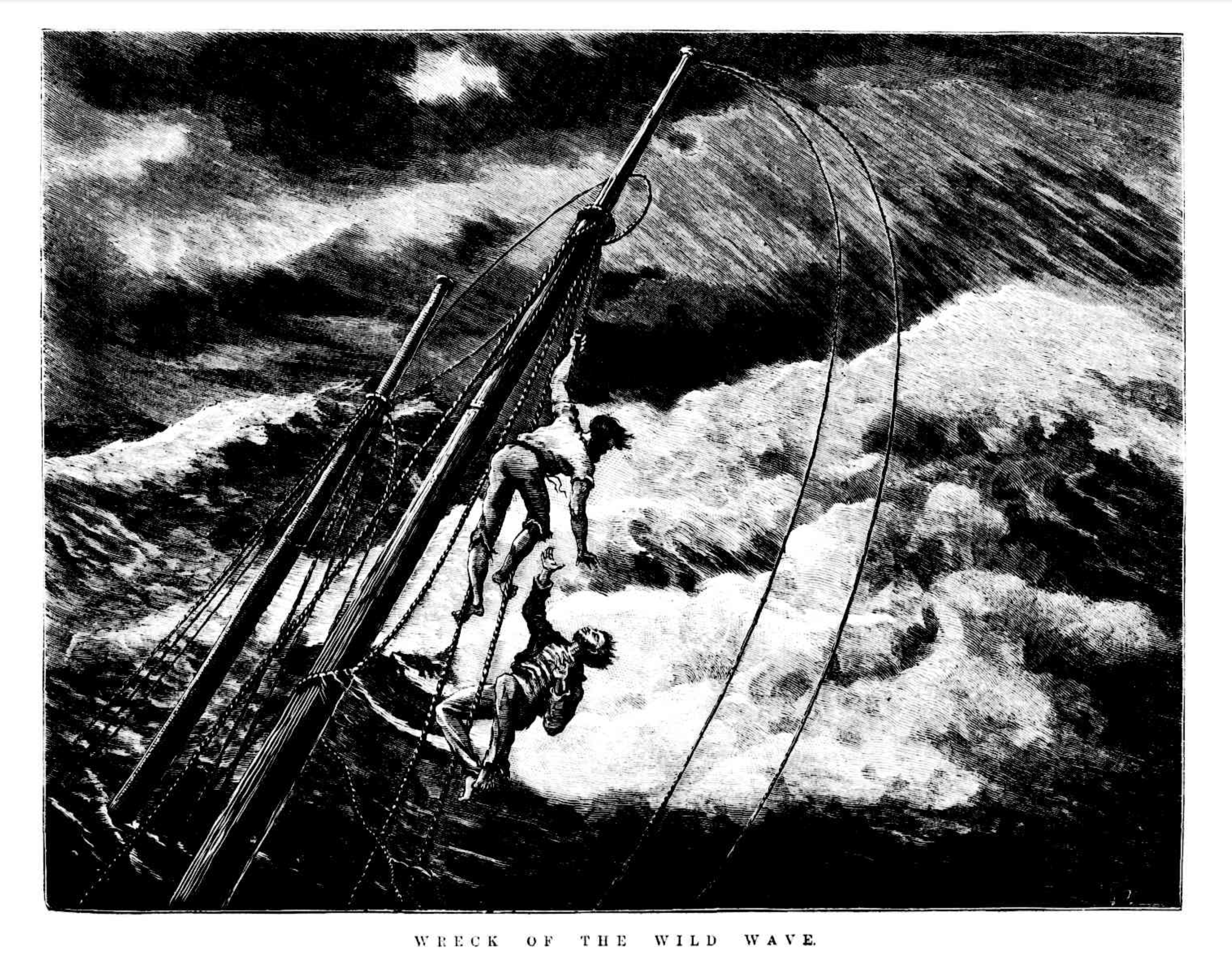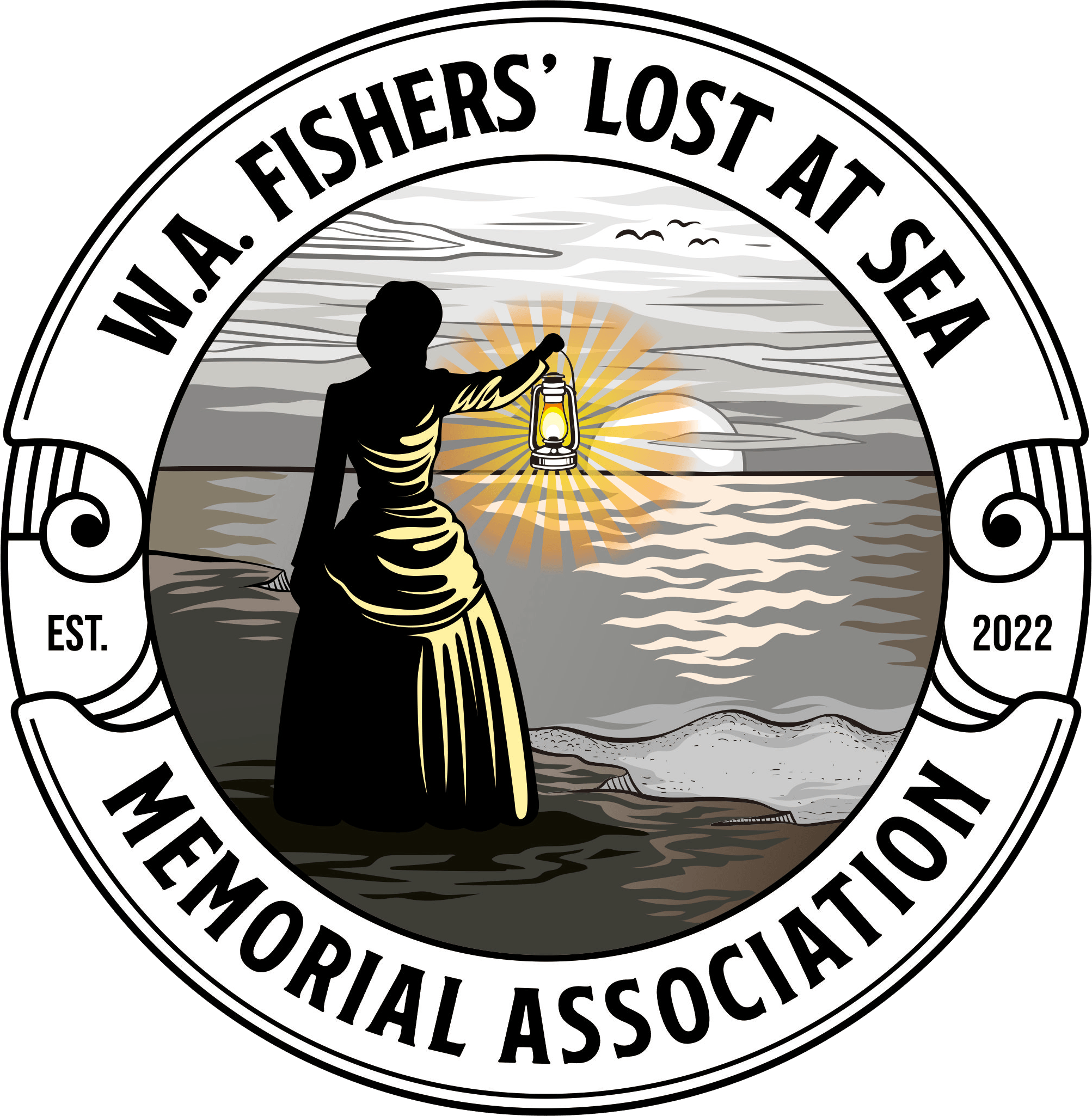Wild Wave
Vessel Name: Wild Wave
William Watson
Charles Gill
Dennis Connor
E. Shadwell
20 Aboriginal divers from Shark Bay
Drowned at Sea; One body found
24 December 1875

Illustrated Sydney News and NSW Agriculturalist and Grazier, Friday 31 March 1876
Wild Wave was built in Fremantle in 1858 by William Jackson, one of several he built for John and Walter Bateman, Fremantle merchants. She was registered in Fremantle as 1/1858, and her official number was 40482. She was a 28 ton ketch with LBD of 50.6 x 15 feet (15.4 x 4.6 metres), with a draft of 6.3 feet (2 metres). She had a wooden frame and a square stern.
Wild Wave was soon set to work as a southern coastal trader with Captain George Cross as owner and master. George added a second mast and rigged the boat as a schooner. From 1861, there were various plans made to use Wild Wave in the lucrative pearl fishery.
At 2am on 16 August 1868, three escaped convicts attempted to board Wild Wave, while she lay at anchor in Bunbury. Fortunately, police had been tipped off that the convicts may seek to escape by boat, and the convicts were soon back in custody, with three extra years to serve.
On 10 June 1872, Wild Wave was sold to Captain William Warden Miles and John McGibbon for the pearling fishery. There was a civil case in the Supreme Court following the sale, and the new owners claimed £1000 from Captain Cross. They had purchased Wild Wave for £500 but could not take delivery of her because she was driven ashore on 21 July in a storm at Geographe Bay. William and John had secured equipment and freight for delivery to the northwest and wanted to recoup their loss. The Court found in favour of George, having received evidence he had done all he could to deliver the boat, even attempting to float her at his own cost.
In 1875 Wild Wave was purchased by Aubrey Brown and Charles Gill (31), Perth ship owners, for the pearl fishery. Her master was Captain William Watson, an experienced master in the northwest waters, fresh from the cutter Gipsy. Charles was aboard as mate. The crew consisted of Dennis Connor (some reports say Cameron), two boys: E. Shadwell and Henry Kennington and 25 Aboriginal divers.
In December 1875, Wild Wave was part of the fleet of about 30 boats working the rich shell grounds they had worked the previous season. On 22 December, the barometer started to drop, and the first squalls blew, causing vessels further north to run for shelter in creeks and mangroves. Wild Wave and 15 other boats were on the east side of Exmouth Gulf. On 24 December a cyclone struck the fleet.
Wild Wave parted her chains, one by one. She dragged her anchors across the reef until she was driven into deep water. Between 5 and 6pm, she sank. The crew were flung into the water and most drowned almost instantly. Charles and Henry clung to the back stays (ropes that stabilise the mast) at top of the main mast. Some hours later, Charles succumbed to exhaustion. He shook hands with Henry, and let go of the mast head, sinking into the raging sea. Henry hung on for 12 long hours, wearing the skin away from his hands where they rubbed against the ropes.
When the cyclone had passed, Henry was found on the beach, unconscious. He was delirious for several days but recovered with medical attention. Henry and five of the Aboriginal crew were the only survivors from Wild Wave. The survivors had made it to the beach. Blossom was swamped and was lost with her five crew members. Lily of the Lake ran for shelter in the eye of the cyclone, but capsized and sank, bow first, taking 29 souls with her.
Charles’ body was washed up onto the beach. He was returned to his family’s home in Hobart and buried there.
In August the following year, Henry was in Bunbury at a concert at the Mechanics’ Hall. Henry had Charles’ pipe, which he kept with him after the cyclone. Reverend Withers snatched the pipe from Henry’s hand, and Henry responded by drinking and challenging Reverence Withers. A melee resulted, with others supporting Henry, understanding why he wanted to regain the pipe. Police removed Henry, who appeared before the court the next morning. He was fined 10s. for being drunk, but there were no charges for fighting, as there was sympathy for Henry’s situation.
In February 1883, the Rob Roy was passing the Monte Bello Islands, and Captain England reported seeing a spar he thought belonged to the lost Wild Wave.
